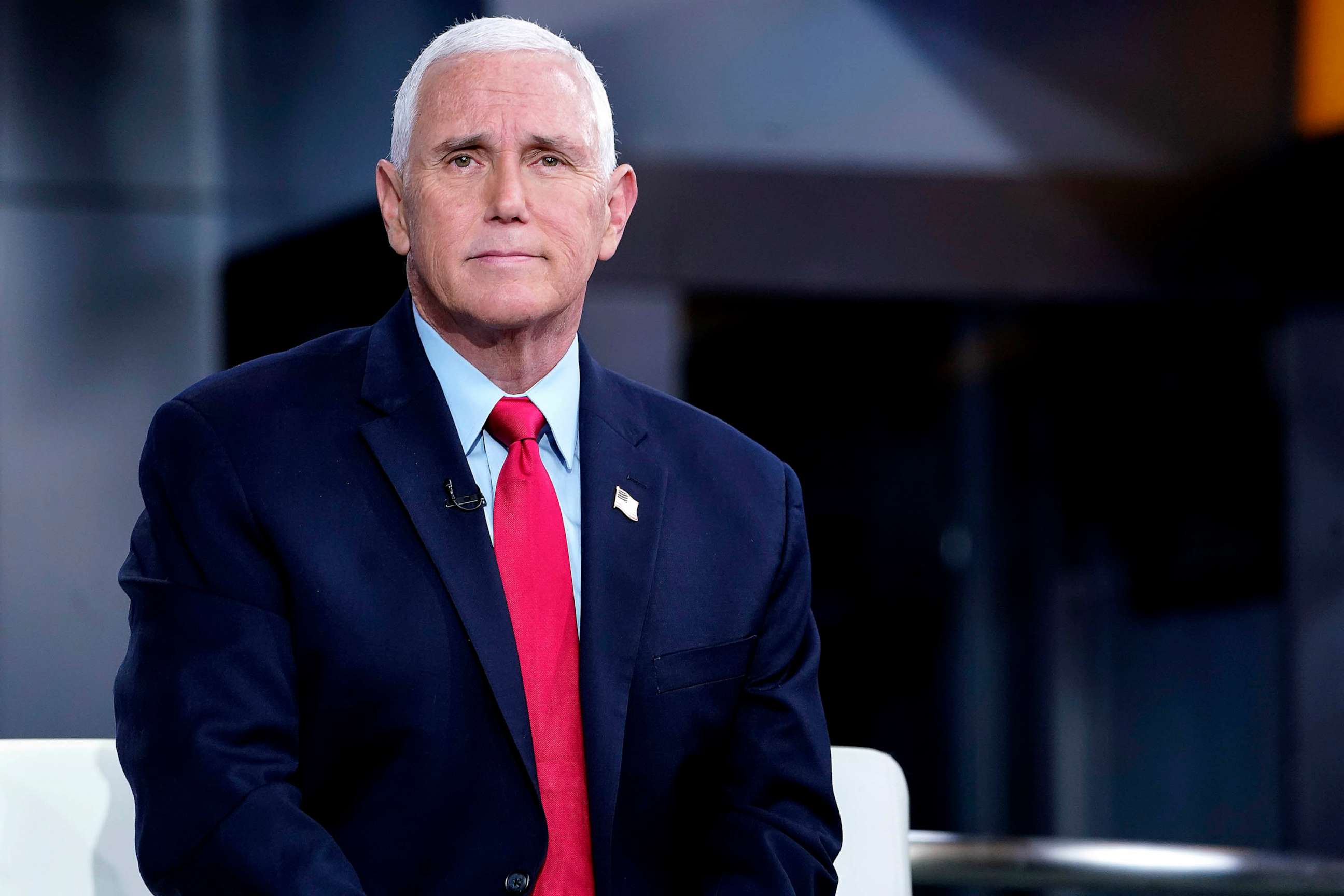Pence indicates he won't challenge all aspects of special counsel's subpoena, as more details emerge
Former Vice President Mike Pence indicated that he is not challenging all aspects of the subpoena issued last month by special counsel Jack Smith in his probe of the failed attempt by then-President Donald Trump and his allies to overturn the 2020 election.
Pence, who has argued that he is covered by the "speech and debate clause" that shields congressional officials from testimony related to their work, was pressed by ABC "This Week" co-anchor Jonathan Karl on whether he was objecting to every topic area covered by the subpoena.
"We're not asserting executive privilege, which may encompass other discussions," Pence told Karl in a sit-down for "This Week."
Pence has invoked the speech and debate clause because in his role in Congress' certification of the vote on Jan. 6, 2021, he was acting as president of the Senate and was a legislative branch member.
"I just believe that the work that I did preparing for and conducting on my role as President of the Senate is covered by the speech and debate clause. I believe we have the law on our side," he told Karl.
But according to Pence's subpoena -- which has been described to ABC News by sources familiar with the document -- there are a number of items that do not relate to Pence's duty certifying the election, including documents and communications relating to efforts to contest the 2020 election and relating to Trump's Jan. 6 rally that led to the Capitol attack.
The subpoena also asks for any documents and communications Pence has related to efforts to install Jeffrey Clark as acting attorney general, which critics say would have empowered Clark to pursue baseless allegations of voter fraud. Clark emerged as a key player in Trump's efforts to leverage the powers of DOJ to find widespread corruption in the 2020 electoral process after it became clear that Joe Biden had won the election.

Sources tell ABC News that the special counsel also wants information from Pence related to Trump attorney John Eastman and any communications Pence may have had with him or involving him. Eastman drafted a plan for Trump to cling to power by falsely claiming that Pence could reject legitimate electors during the certification on Jan. 6.
Investigators also want to know whether Pence had any communications with state or local officials related to any claims of fraud in the 2020 election.
Pence has vowed to fight the subpoena to the Supreme Court, if necessary, telling Karl, "We're going to respect the decisions of the court, and that may take us all the way to the highest court in the land."
Trump, for his part, is challenging Pence's subpoena as well, but on the basis of executive privilege. The court battles, which are taking place out of public view, are shrouded in secrecy due to the confidential nature of the grand jury.
Pence's subpoena was issued after months of negotiations between federal prosecutors and Pence's legal team.




